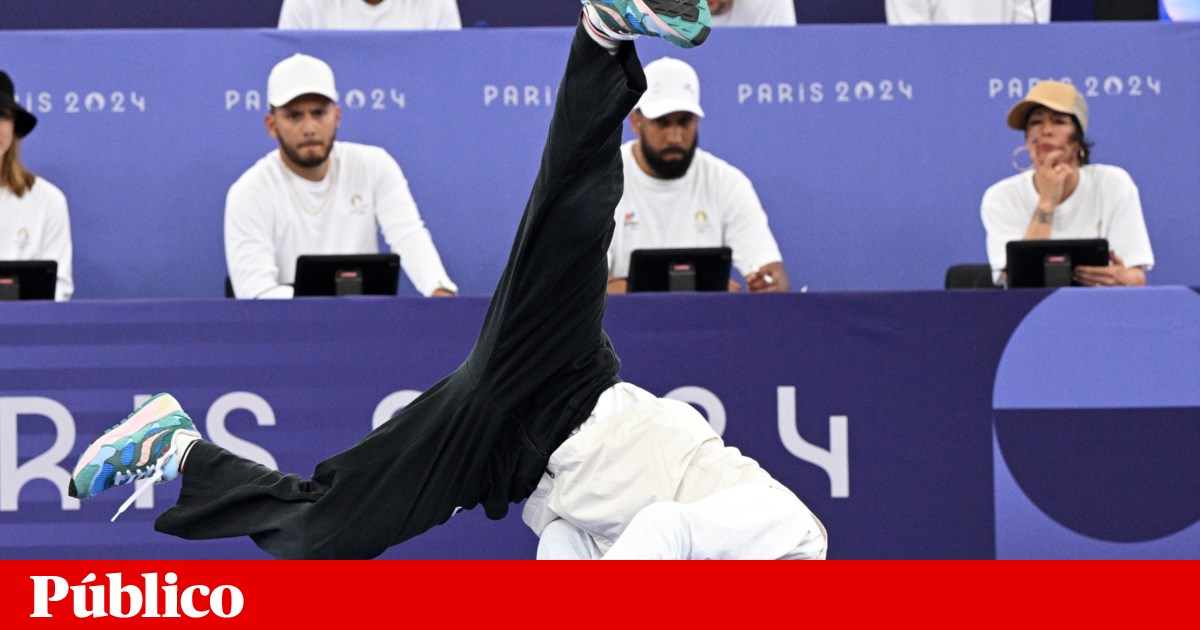There is no more obvious justification for making icebreaking an Olympic sport than the search for a younger audience. And for that reason, it’s not a permanent fixture—it won’t be at Los Angeles 2028—but if it does what it sets out to do, it will bring a younger audience to the Paris Games. A new audience that will be able to admire a champion in her 40s.
“I'm old, but I don't feel old,” Ayumi Fukushima said. Agence France-PresseA few months ago, an idea he developed for PÚBLICO, this Friday: “I feel energetic. And I love being among these young people. And that was it. There was no point in making small talk, especially since it was a bit against the rules. But forward.
Speaking of rules, there is a common sense rule that tells us that anyone who says “In my time…” or “In my generation…” needs to be showered with young people. “Now, some of them can make a living from dancing, but in my generation it was common to work while dancing,” Ayumi pointed out.
As I used the phrase “in my generation,” you need this bathroom. And you’ll have it in Paris. Of the 15 competitors in Paris, Ayumi, 41, is old enough to be a mother to at least 10 of them — and she’ll be competing against competitors whose average age is 25. Let’s put it another way: Ayumi was already dancing before some of her competitors were born.
Bookmakers say Ayumi comes to Paris as one of the strongest favourites for gold, but more importantly the Japanese arrives at the Games with a different story to her younger, mostly student opponents.
“I wanted to lose weight”
Most opponents don't have enough years to live to have much to say. But Ayumi is different. She's an elementary school teacher, an activity she had to slow down once she break It has become an Olympic project for him, but he doesn't want to give it up completely.
“Teaching is my profession, but it’s also good for mental balance,” she says, referring to a parallel activity, dancing, which has changed a lot since becoming an Olympian. “At some point, I realized I had forgotten the fun part of dancing. The challenge has to be part of the fun.”
How does the teacher end up? breakNo, it wasn’t because of the students’ influence. “In 2004, I came back from my summer vacation in Canada and wanted to start something new and lose weight, after I had gained ten kilograms,” he says. Website Olympics, the day her sister took her to watch a football game break.
In 2017, she became the first woman to participate in the Red Bull BC One, an international competition in a sport that at the time did not yet have a women's category. From there, many others joined, the fifteen who also came to Paris, including Portugal's Vanessa Marina.
the break leave the street
Now, in games, break He faces a dilemma. At first, in the 1970s, it was more of a cultural expression derived from hip-hop, or even art, than a sport.
Most conservative break They do not agree to the transition to the Olympic style, because it removes the foundations of dance as an art: it begins, like skating, with principles such as points, classifications, qualifications, technical details of movements, etc.
All this transformation is necessary to become an Olympic competition, more than just crew Ayumi fighting in the streets is a good development, because being in games popularizes the sport.
“I was part of a very beautiful culture in breakBut for the past two years, I have been a part of this sport. And I couldn't be happier and more grateful that people know better. break And the support. I really couldn't be happier.

“Writer. Communicator. Award-winning food junkie. Internet ninja. Incurable bacon fanatic.”

